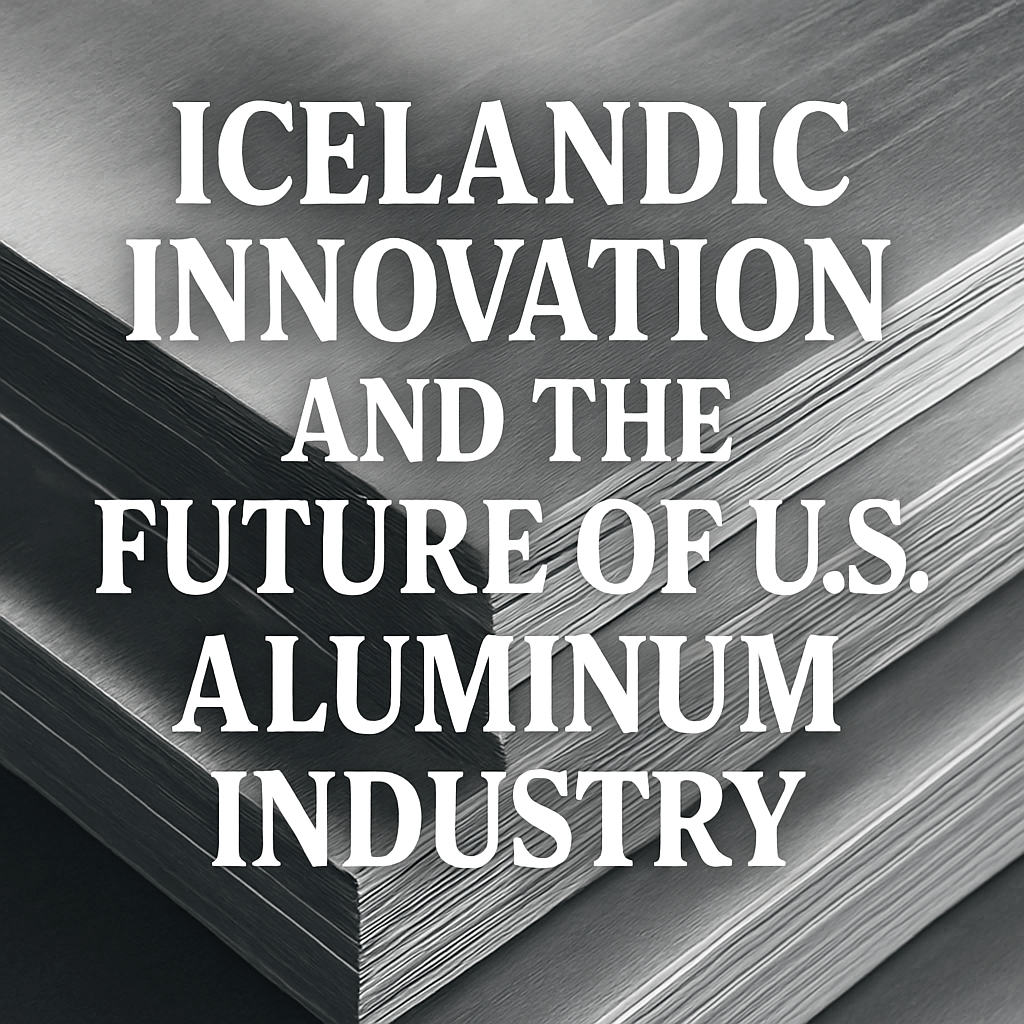Icelandic Innovation and the Future of U.S. Aluminum Industry

Aluminum, a ubiquitous material in our modern society, faces environmental scrutiny due to its significant carbon footprint. As global demands escalate, exacerbated by tariffs implemented under former President Donald Trump’s administration, the aluminum market is under pressure to adopt more sustainable practices. Iceland, renowned for its innovative environmental solutions and clean energy, may hold the key to enhancing the circular economy within the U.S. aluminum industry.
The Challenge of Aluminum Recycling
Producing aluminum is not merely about melting down scrap, as its various forms—from aerospace components to beverage cans—each demand uniquely tailored recycling processes.
Kristjan Leosson, CTO of Reykjavik-based startup DTE, highlights the complexities involved: “If you melt used beverage cans, the resulting alloy won’t yield beverage cans again.” This illustrates the intricate ballet of managing diverse aluminum streams to generate high-value outputs.
DTE’s Innovative Approach
DTE has developed proprietary technologies that facilitate the recycling process by employing real-time analytic capabilities. Utilizing advanced sensors to monitor aluminum’s chemical composition during melting, DTE empowers its clients to optimize recycling efforts without compromising material quality. This precise adjustment is critical, particularly as the demand surges for high-strength aluminum alloys, which are increasingly used in aerospace, defense, renewable energy, and semiconductor applications.
Real-time Data and Automation
The application of DTE’s sensors goes beyond mere monitoring. With data-driven insights, manufacturers can automate processes that were historically labor-intensive and fraught with safety hazards. As Karl Ágúst Matthíasson explains, just as restaurants refine ingredients for efficiency, manufacturers can maximize scrap reuse through diligent tracking and monitoring. Historically, the aluminum sector has resisted modernization, but recognition of its environmental responsibilities has catalyzed a shift towards sustainability.
A Geopolitical Perspective
Current economic conditions, including ongoing tariffs, serve to bolster the recycling sector within the Western economies. Jakob Asmundsson, the recently appointed CEO of DTE, suggests that these tariffs inadvertently drive demand for recycled aluminum, positioning DTE favorably within the market. Asmundsson also notes the historical partnership between DTE and aluminum giant Novelis, indicating Novelis’ vested interest in promoting advancements in recycling technology.
Investment and Safety Factors
The strategic relevance of DTE was highlighted during DTE’s $16 million Series A2 funding round in 2023, which included participation from Novelis. Senior Vice President Derek Prichett emphasized that DTE’s innovations not only enhance product quality but significantly mitigate safety risks by automating processes that otherwise require manual intervention with molten metal.
Iceland’s Low-Carbon Advantage
Iceland boasts a unique position in the global aluminum market, largely due to its renewable energy sources—hydroelectric and geothermal. The country’s electricity grid is entirely sustainable, allowing its aluminum producers to operate with significantly lower CO2 emissions compared to counterparts in regions reliant on fossil fuels. This eco-friendly production has drawn international metal firms, looking to lower their carbon impact.
Broader Icelandic Innovations
The advancements stem beyond DTE, with additional Icelandic startups like SnerpaPower working on smart energy management for power-intensive industries, and Arctus Aluminium, which is piloting technology to eliminate CO2 emissions entirely. These innovations underline Iceland’s potential to drive sustainable practices not just locally but globally.
Looking Ahead: A Path to Circular Economy
The urgent need for the U.S. to reshore its aluminum supply chains mandates a shift towards local sourcing and improved recycling techniques. With strong partnerships between U.S. companies and Icelandic innovators like DTE, the potential for decreased dependence on imported aluminum and enhanced environmental responsibility is greater than ever. As metals firms such as Novelis actively seek to meet circularity objectives, the deployment of advanced technology from Iceland can facilitate reductions in both costs and emissions.
Derek Prichett reinforces, “Improving the sustainability of the aluminum industry is a complex task that requires diverse elements, and we believe DTE’s technology is a crucial piece of that puzzle.”